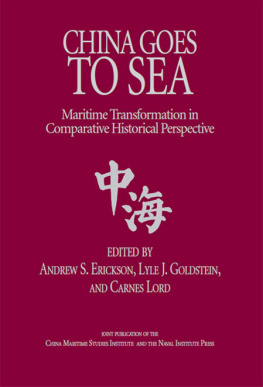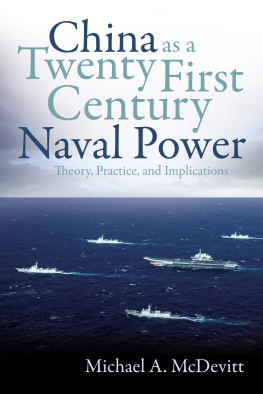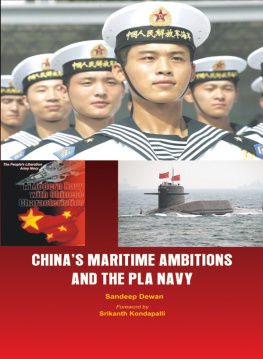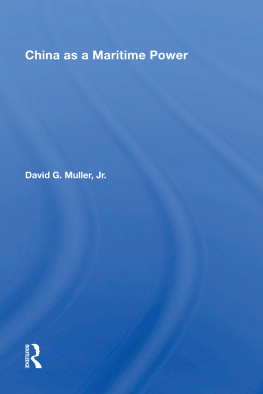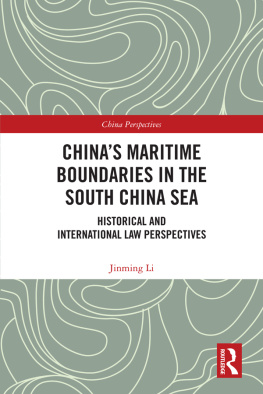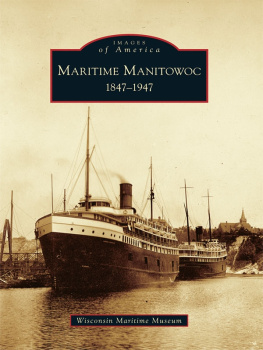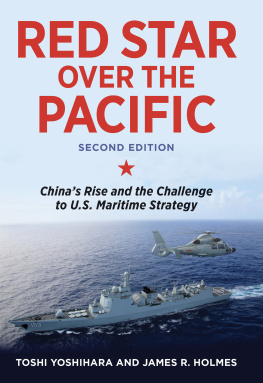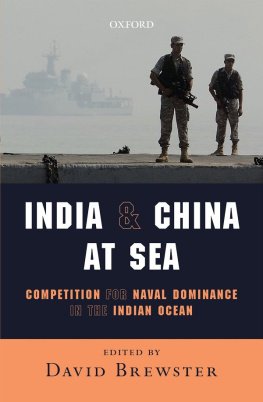Andrew S. Erickson - China Goes to Sea: Maritime Transformation in Comparative Historical Perspective
Here you can read online Andrew S. Erickson - China Goes to Sea: Maritime Transformation in Comparative Historical Perspective full text of the book (entire story) in english for free. Download pdf and epub, get meaning, cover and reviews about this ebook. year: 2009, publisher: Naval Institute Press, genre: Politics. Description of the work, (preface) as well as reviews are available. Best literature library LitArk.com created for fans of good reading and offers a wide selection of genres:
Romance novel
Science fiction
Adventure
Detective
Science
History
Home and family
Prose
Art
Politics
Computer
Non-fiction
Religion
Business
Children
Humor
Choose a favorite category and find really read worthwhile books. Enjoy immersion in the world of imagination, feel the emotions of the characters or learn something new for yourself, make an fascinating discovery.
- Book:China Goes to Sea: Maritime Transformation in Comparative Historical Perspective
- Author:
- Publisher:Naval Institute Press
- Genre:
- Year:2009
- Rating:3 / 5
- Favourites:Add to favourites
- Your mark:
China Goes to Sea: Maritime Transformation in Comparative Historical Perspective: summary, description and annotation
We offer to read an annotation, description, summary or preface (depends on what the author of the book "China Goes to Sea: Maritime Transformation in Comparative Historical Perspective" wrote himself). If you haven't found the necessary information about the book — write in the comments, we will try to find it.
In modern history, China has been primarily a land power, dominating smaller states along its massive continental flanks. But Chinas turn toward the sea is now very much a reality, as evident in its stunning rise in global shipbuilding markets, its vast and expanding merchant marine, the wide offshore reach of its energy and minerals exploration companies, its growing fishing fleet, and indeed its increasingly modern navy. Yet, for all these achievements, there is still profound skepticism regarding Chinas potential as a genuine maritime power. Beijing must still import the most vital subcomponents for its shipyards, maritime governance remains severely bureaucratically challenged, and the navy evinces, at least as of yet, little enthusiasm for significant blue water power projection capabilities. This volume provides a truly comprehensive assessment of prospects for Chinas maritime development by situating these important geostrategic phenomena within a larger world historical context. China is hardly the only land power in history to attempt transformation by fostering sea power. Many continental powers have elected or been impelled to transform themselves into significant maritime powers in order to safeguard their strategic position or advance their interests. We examine cases of attempted transformation from the Persian Empire to the Soviet Union, and determine the reasons for their success or failure. Too many works on China view the nation in isolation. Of course, Chinas history and culture are to some extent exceptional, but building intellectual fences actually hinders the effort to understand Chinas current development trajectory. Without underestimating the enduring pull of Chinas past as it relates to threats to the countrys internal stability and its landward borders, this comparative study provides reason to believe that China has turned the corner on a genuine maritime transformation. If that proves indeed to be the case, it would be a remarkable if not singular event in the history of the last two millennia.
Andrew S. Erickson: author's other books
Who wrote China Goes to Sea: Maritime Transformation in Comparative Historical Perspective? Find out the surname, the name of the author of the book and a list of all author's works by series.

